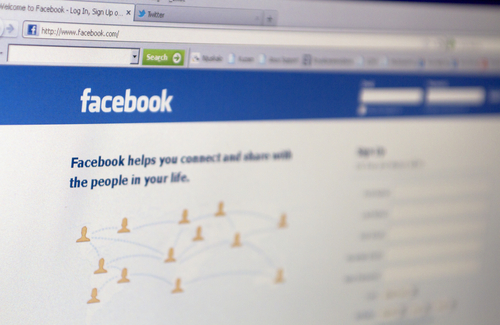Fireworks at a football match [1] [es] in Bolivia turned deadly after a flare hit and killed a 14-year-old boy. To cover the tragedy, media outlets used an image from the boy's Facebook page, sparking a debate on whether it is ethical, or even legal, to use photographs of minors from social networks.
The boy was supporting San Jose [2], a football club from Oruro city in Bolivia on February 20, 2013. San Jose was playing against Corinthians [3], a popular Brazilian squad and the defending champion of the 2012 Copa Libertadores [4], the most important football tournament for clubs in Latin America.
Five minutes after the kick-off Corinthians scored a goal. Although banned in football stadiums, some fans responded with celebratory fireworks, and a flare ended up hitting the 14 year-old Bolivian fan. Local media reported [5] [es] that the boy received medical aid, but died of his injuries on the way to the hospital.
National and international [6] media started to follow the events closely after several Corinthians’ fans were arrested; a few remain in police custody and could be prosecuted.
Netizen Mario Duran (@mrduranch [8]) [es] pointed out that local media used the victim's Facebook profile image to cover the tragedy. Duran inquired on Twitter whether such publication is ethical, moral, or even legal:
@mrduranch [9]: una duda, medios de prensa pueden publicar fotos de menores de edad? #bolivia [10]
@mrduranch [9]: Question, is the press entitled to publish photos of minors? #Bolivia [10]
Netizens, and particularly journalists, reacted with different points of view. Mario Duran published a few responses on his blog Palabras Libres [11] [es].
Fabiola Chambi (@fabiolachambi [12]) [es], a journalist who is very active online, immediately reacted to Mario's question:
@fabiolachambi [13]:@arquitecta [14] @mrduranch [15] No es ético, falta a la moral y habla mal del medio y de su proceder.
@fabiolachambi [13]: @arquitecta [14] @mrduranch [15] It is unethical, it goes against morality and shows how badly the media acted.
Ruben Atahuichi (@RDAtahuichiL [16]) [es], an editor at one of the largest national newspapers said:
@RDAtahuichiL [17]: @mrduranch [15] Dependiendo de la connotación: si afectan su integridad o los ponen en riesgo, no
@RDAtahuichiL [17]: @mrduranch [15] Depending on the connotations: if [the image] affects the integrity [of the minor] or threatens him, no.
Addressing the question from a legal angle, Mario Duran later commented:
@mrduranch [18]: @gezn [19]no es legal, no porque esta en internet puedes usar imagen de individuo sin consentimiento cc @sniferl4bs [20]
@mrduranch [18]: @gezn [19] It is not legal, the fact that it's on the Internet does not give you the right to use an image without permission cc @sniferl4bs [20]
Mauricio Quiroz (@MichoQuiroz [21]) [es], another journalist, considers the issue from a different point of view:
@MichoQuiroz [21]: @RDAtahuichiL [22] @mrduranch [15] Si la imagen no denigra al menor pueder ser empleada. La imagen en cuestión es de contexto.
@MichoQuiroz [21]: @RDAtahuichiL [22] @mrduranch [15] If the image does not denigrate the child, it may be used. The image under scrutiny is giving context [to the news].
Cesar Galindo (@CesarGalindQNMP [23]), a well known journalist and TV presenter, also joined the debate saying:
@CesarGalindQNMP [24]: @mrduranch [15] @jesus_alanoca [25] Sin duda todos caemos en tentación sin importar las consecuencias pero la ética es un código q esta en la sangre
@CesarGalindQNMP [24]: @mrduranch [15] @jesus_alanoca [25] Undoubtedly we all fall into temptation regardless of the consequences, but ethics is a code that is in the blood [of journalists]
